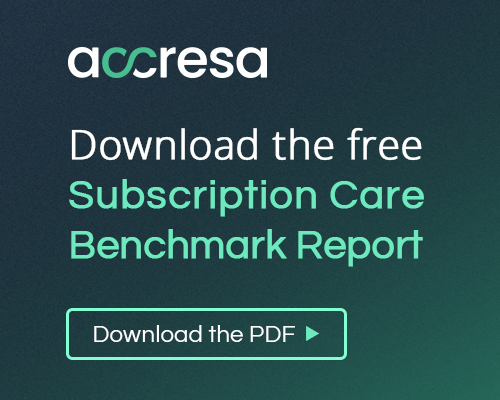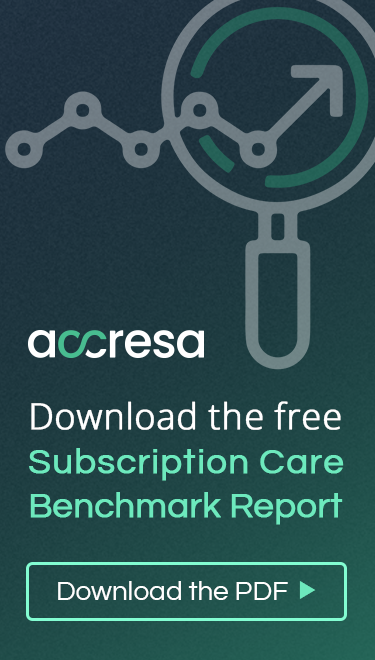The True Benefits of Direct Primary Care
Direct Primary Care (DPC) is a relatively new healthcare model in the United States and has attracted much attention lately. But what is it being used for? Is it a crunch in the alternative medicine field? Or is something bigger happening here? Despite the uncertainty within some direct care sectors, many are just now discovering this new approach to healthcare and are taking note of its benefits.
What Is Direct Primary Care?
Direct Primary Care is a new healthcare model that provides affordable, high-quality medical care. It was developed as an alternative to traditional insurance-based healthcare systems where patients pay a membership-based fee to their doctor directly each month for preventive care services.
How Direct Primary Care Supports Enterprise Healthcare Networks
We’re all familiar with the rising importance of direct care in enterprise healthcare networks. The growing number of ACOs — accountable care organizations — is a testament to this. The ACO model allows providers to work together as an organization rather than compete against each other for patients. This unified approach gives providers more time to focus on their patients and less time on administration.
Direct Primary Care practices provide a much-needed alternative to traditional health insurance models, which are often too expensive and confusing for patients. Patients can visit their Direct Primary Care provider whenever they need an appointment (often same day or next day)— no insurance is required!
But what if you could go one step further with your direct care strategy? What if you could reduce administrative burdens while improving patient satisfaction and retention? When you implement a DPC model, these things are very realistic outcomes as more time and attention is brought to patient care.
Why Direct Primary Care Is The Solution For Healthcare Providers
For Healthcare Providers, the Direct Primary Care model has four main benefits:
- Doctors spend less time on paperwork and dealing with insurance companies, so they have more time to spend with patients.
- The administrative burden on doctors is decreased because they don’t have to deal with health insurance. Uncompensated tasks, with up to 20% of the average workday ($50k annually!) spent on administrative matters unrelated to patient care.
- A payment system in place always leaves physicians feeling like their services are being compensated fairly.
- Providers no longer need to worry about getting paid appropriately by insurance companies.
Direct Primary Care physicians can provide a more personalized approach to patient care by avoiding third-party payers and their associated regulations. This allows Direct Primary Care providers to focus on their patient’s needs instead of worrying about how best to bill insurance companies. In addition, direct-care physicians can spend more time with their patients, ensuring that all of their needs are met.
Remain Independent
Direct Primary Care physicians are not beholden to any one third-party payer or system. They can choose which insurance plans they work with and what coverage they will accept. This allows them to maintain control over their practice and stay independent from large corporations.
Improve Patient Outcomes
Direct Primary Care physicians have access to a larger pool of patients than most traditional doctors because they do not have to worry about billing insurance companies or following complex EHR requirements that often interfere with patient care. This means they have more time available for each patient visit and can tend to each patient’s needs individually rather than being forced into treating everyone the same way due to limited resources or cost constraints.
Eliminate Third-Party Payer Interference
Direct Primary Care physicians do not have to deal with interference from third-party payers because they have no contracts with insurance companies.
Why Direct Primary Care Is Beneficial For Employers
Direct Primary Care is beneficial for employers because it lowers their overall spending on health benefits, and it’s also helpful for employees because they get more affordable access to primary care services close to home. – Milliman: Direct Primary Care, Evaluating a New Model of Delivery and Financing
- Savings for employers – employers reduce high-cost claims and save on overall health spending when implementing DPC
- Lower patient out-of-pocket costs for primary care services, including the subscription membership fee (81%)
- Members had 19.90% lower claim costs for employers on an unadjusted basis
- Members had 12.64% lower claim costs on a risk-adjusted basis during two years
- Members experienced approximately 40% fewer ER visits than those in traditional plans
- Members experienced a 53.6% reduction in ER claims cost
- Members experienced 25.54% lower hospital admissions on an unadjusted basis
Enhanced Customer Service – Employees who receive care from a DPC physician are more satisfied with their health plan and more likely to recommend it to others.
ACA regulation – ACA regulation does not impact the self-insured plans required for Direct Primary Care plans. Since DPC is not considered insurance, it does not fall under the ACA’s requirement to cover preventative care services without cost-sharing or deductibles. This allows employers offering DPC plans to continue providing this benefit without being subject to regulatory changes made by the ACA.
Employee Health – DPC patients develop a strong relationship with a trusted primary care physician, improving access to care, and enabling better wellness outcomes.
Recruiting and Retention – The DPC model is an attractive addition to the employer’s benefits package that can reduce costs while providing superior care to
The Advantages Of Direct Care For Employees
In the past few years, there has been an increasing focus on the benefits of Direct Primary Care for employees. Direct Primary Care is a healthcare model that allows patients to connect with physicians and other specialists who are directly responsible for their care.
Direct Primary Care gives you more access to your physician, better coverage of routine visits, and more control over your healthcare experience.
According to a recent study by Milliman, 98% of respondents said they expect the subscription model of care to:
- Improve patient satisfaction with primary care experience (98%)
- Increase the extent to which patients rely on their primary care physician for non-primary care services (81%)
- Increase patient compliance with preventive care guidelines (68%)
The Direct Primary Care model provides patients with a more personal experience and better access to health care services. By putting the patient at the center of their care, they can access their physician through a secure portal.
The direct care model has many advantages for employers, employees, and patients:
Improved Care for patients/physicians: Patients can better manage their care and communicate their needs with their doctor. The patient-centered approach to managing chronic conditions leads to better outcomes for patients with chronic conditions who use the system.
Spend more face-to-face time with your physician: With unlimited visits and phone calls, direct care enables you to talk directly with your doctor about your health concerns.
Receive services your physician offers at a $0 copay: Direct care eliminates surprise medical bills by providing all services at no out-of-pocket cost.
Ability to be proactive with their health: In the traditional fee-for-service model, if someone goes into urgent care or an emergency room because they have an ear infection, they will be charged $100 or more simply because that’s what it costs to be seen. With direct care, there is no charge for preventive services such as annual physicals or immunizations.
Direct Care For Brokers & Consultants
Direct care is an excellent option for brokers and consultants to offer their clients, as DPC is a value-based model that can be used as an employee benefit or as an independent option for employees.
Offer your client more plan options.
Direct Primary Care is an excellent employee benefit that can be offered alongside other health insurance plans, including traditional PPOs, HMOs, and HDHPs. Employees can choose the best method based on their needs and budget.
“83% of employees in the DPC plan saw their DPC provider at least once during CY2020 as compared to an average of 67% for employees in our other two medical plans offered”
Employees see great value in the model and can utilize it more than expensive insurance options.
Direct Primary Care Is Compliance-Based
Direct Primary Care is also great because it offers compliance options that are easy to implement and use. Consultants can customize their plans with different levels of compliance depending on what they need. This helps them stay compliant while offering employees flexibility in choosing how they want to access their healthcare needs.
Some Things to Consider to Make Sure Accresa is the Right Fit
Accresa is a complete practice management platform that allows you to manage your patients, your network, and plan designs. As well as track billing and insurance, generate invoices, and more. Accresa can be used by any medical professional, from dental offices to physical therapists.
While this is great and provides limitless utilization for many different uses, there are some essential factors to consider.
Cost: This will ultimately be the biggest concern for people looking to make the switch. Accresa is a fantastic platform, but there may be better choices for smaller practices in the long run. We would only recommend our platform for medium to larger healthcare practices.
Accresa – The Future Of Healthcare
The direct care industry will continue to evolve, but subscription-based models will remain central. They offer significant benefits to buyers and sellers of healthcare, employers, and employees alike. With this in mind, each party should invest in understanding the benefits and concerns of this industry, allowing them to be part of the new paradigm with purpose rather than reaction.
Accressa’s platform and services are designed to help healthcare facilities create, optimize, and implement a subscription-based model of care.
If you are ready to take the next step with your subscription healthcare service, talk to Accresa today.


